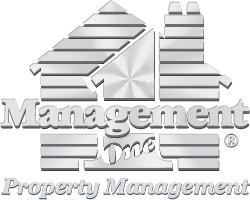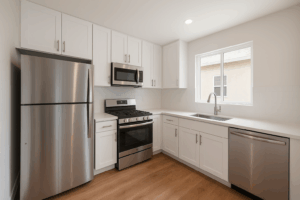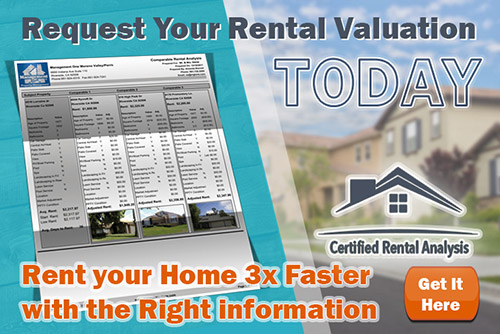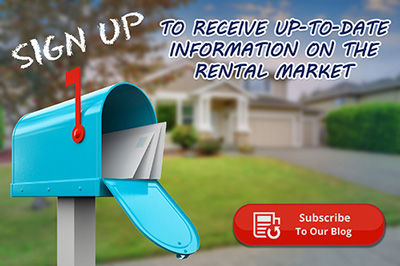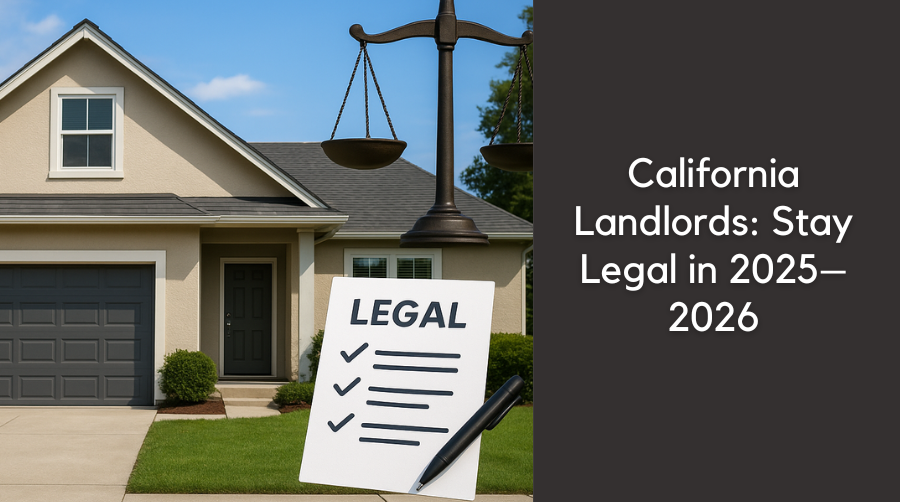
California Landlords: What You Need to Know About the 2025-2026 Legal Shift to stay LEGAL
As a California rental home owner, staying on top of the evolving regulatory landscape is crucial. In 2025, the state passed several important laws that impact how you navigate residents, properties, fees, security deposits, and screening. Looking ahead to 2026, additional reforms will bring more obligations, so preparation is key.
Below is a breakdown of the key changes (2025) and what’s coming (2026) compiled specifically for owners of single-family homes and investment rental properties.
Key 2025 changes for landlords
Positive rent-payment reporting – Under AB 2747 (effective April 1, 2025, for new leases; for existing leases by April 1), landlords must offer residents the option to have their on-time rent payments reported to a consumer-reporting agency.
Landlords or management companies can only report positive payments; no late payments can be reported.
Landlords may charge a fee (actual cost) of no more than about $10/month to cover this service.
According to the California Apartment Association, this law doesn’t apply to the following:
The owner of 15 or fewer residential rental properties, or if you own a residential building with 15 or fewer units, unless both of the following apply:
- The landlord owns more than one residential home, condo, or apartment building, regardless of the number of units in each building.
- The landlord is one of the following:
- A real estate investment trust, as defined.
- A corporation.
- A limited liability company in which at least one member is a corporation.
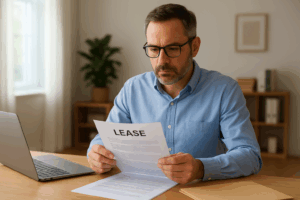
Security deposit & photographic evidence rules
Starting July 1, 2025 (for new leases) you must supply “before” move-in photos, and “after” vacancy/cleaning/repairs photos tied to any deposit deductions.
If you fail to provide required photo documentation and itemized deduction statements, you may lose the ability to claim against the deposit. You may also be charged up to three times the security deposit in damages.
Essentially you are sending out two security deposit breakdowns. The first one must go out within 21 days of the resident moving out of the home. If the work isn’t completed at that time, you will need to send a second breakdown with the receipts and photos showing the work that was completed.

Rent-increase cap and eviction/tenant-protection rules
Under AB 1482 (Tenant Protection Act of 2019), for covered units the maximum annual rent increase for Aug 1 2025–July 31 2026 is 5% + local CPI (or 10%, whichever is lower). For example, Riverside County is capped at 7.5% and Orange County, with the exception of Santa Ana, is capped at 8%. Santa Ana is capped at 3% unless your property was built in the last 15 years.
It’s important that the proper, Rent Cap, Just Cause notice is signed when a resident starts a new lease. If your resident lived in your property prior to January 1st, 2020, then a notice needed to be served and signed in 2020 advising of the new law.
What’s coming in 2026
Appliance mandate – stoves & refrigerators –
Under AB 628, beginning January 1, 2026, all new residential leases (and renewed/modified leases) will require the unit to include a functioning refrigerator and stove as part of the “tenantable” standard.
Landlords are required to provide and maintain these appliances. The law stipulates that the appliances must be 10 years old or newer. Anything older than that must be replaced. A resident may supply their own refrigerator, provided a written agreement is in place. However, this can be retracted by the resident with a 30-day written notice.
Rules for Late Fees Are Broadened
As noted above, AB 1248 would require that residents only be charged rent plus prescribed fees/charges (e.g., security deposit, disclosed utility charges) for leases beginning January 1, 2026. Late fees, spread-fees, or undisclosed fees may be prohibited.
This hasn’t passed yet, but is coming up for a final decision soon. We will keep you updated as the changes are made.
What should landlords do now?
Budget for upgrades: If your rentals lack refrigerators/stoves (or need replacements), begin planning now ahead of the Jan 1, 2026 mandate under AB 628.
Monitor emerging bills: Legislation such as AB 1248 is still advancing—stay current so you’re ready when the law actually takes effect.
Why this matters to you and Management One
As a property-management company and landlords, these legal changes aren’t just regulatory burdens; they’re operational risks and value drivers. Noncompliance can lead to costly litigation, fines, lost security-deposit claims, invalid fees, and increased vacancy/tenant turnover. On the other hand, being proactive and compliant strengthens your reputation, reduces disputes, and helps you maintain smoother operations and higher occupancy rates.
In particular:
- If you neglect to serve the proper deposit documentation or take photos, you may forfeit your right to claim against a deposit.
- Failure to include proper appliance provisions could make your unit legally untenantable under the upcoming law.
- Hidden or undisclosed fees will increasingly draw scrutiny and could need to be rolled into base rent.
- Knowing which units are covered (or exempt) under the rent-cap law allows you to optimize rent increases and timing.
In closing
The years 2025 and 2026 mark meaningful shifts for California residential landlords—especially those managing single-family homes or small portfolios. Many changes emphasize transparency, documentation, maintenance/upgrades, and resident protection. The core of our business—protecting property value, screening residents, collecting rent, reducing vacancy—remains, but the compliance framework is becoming more demanding.

